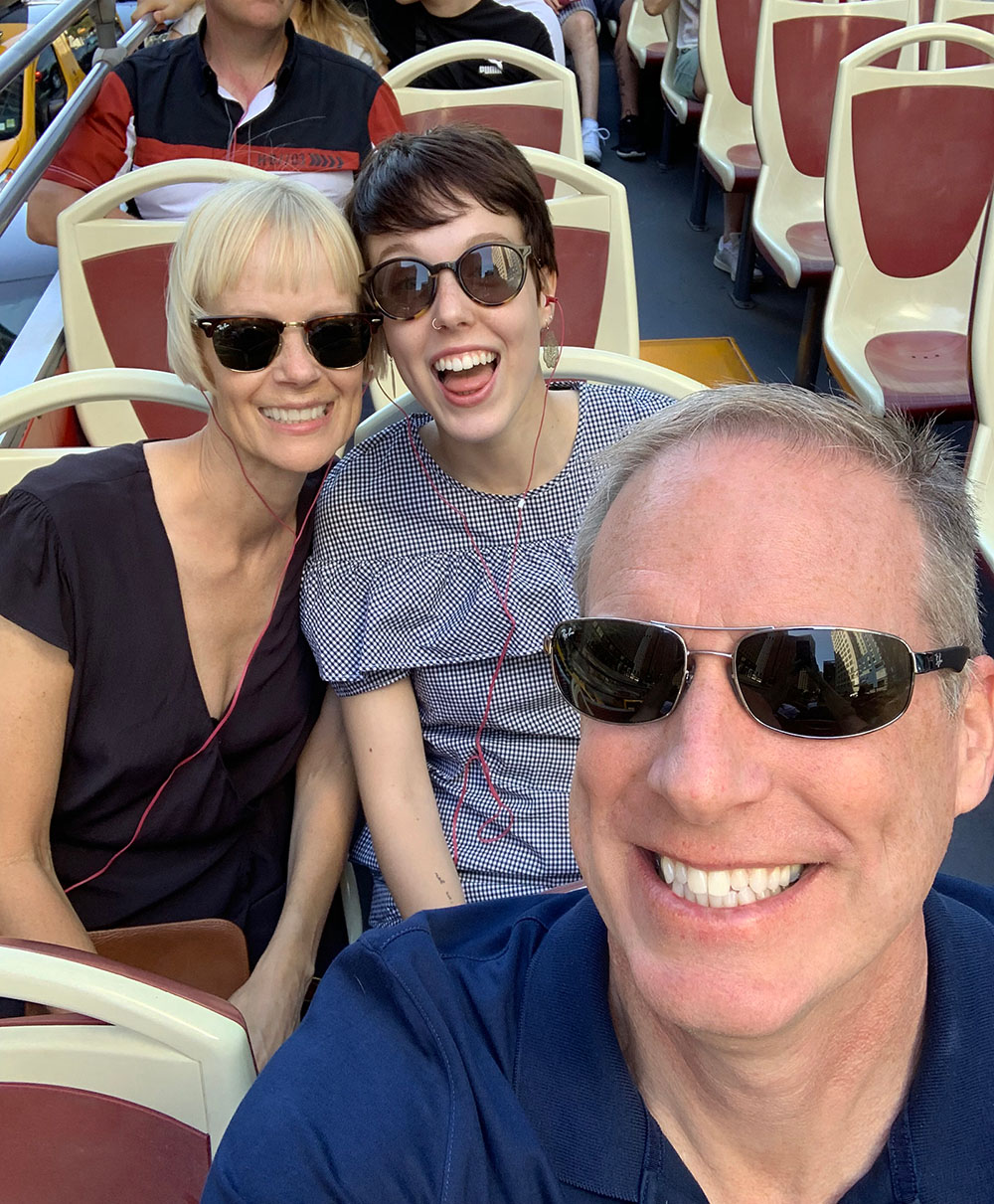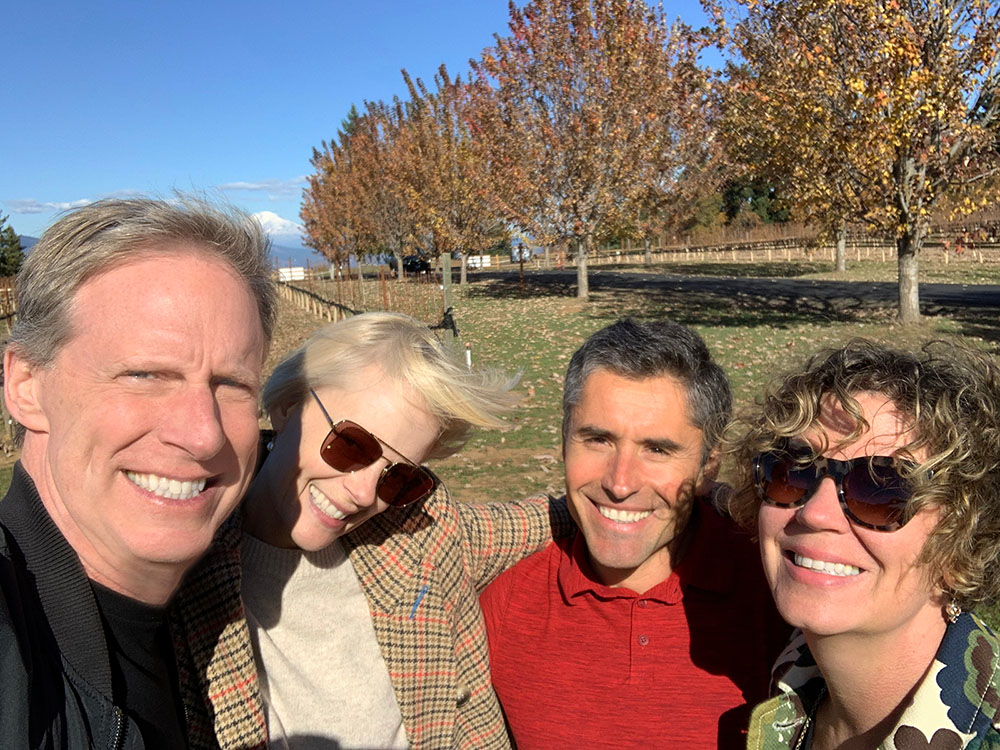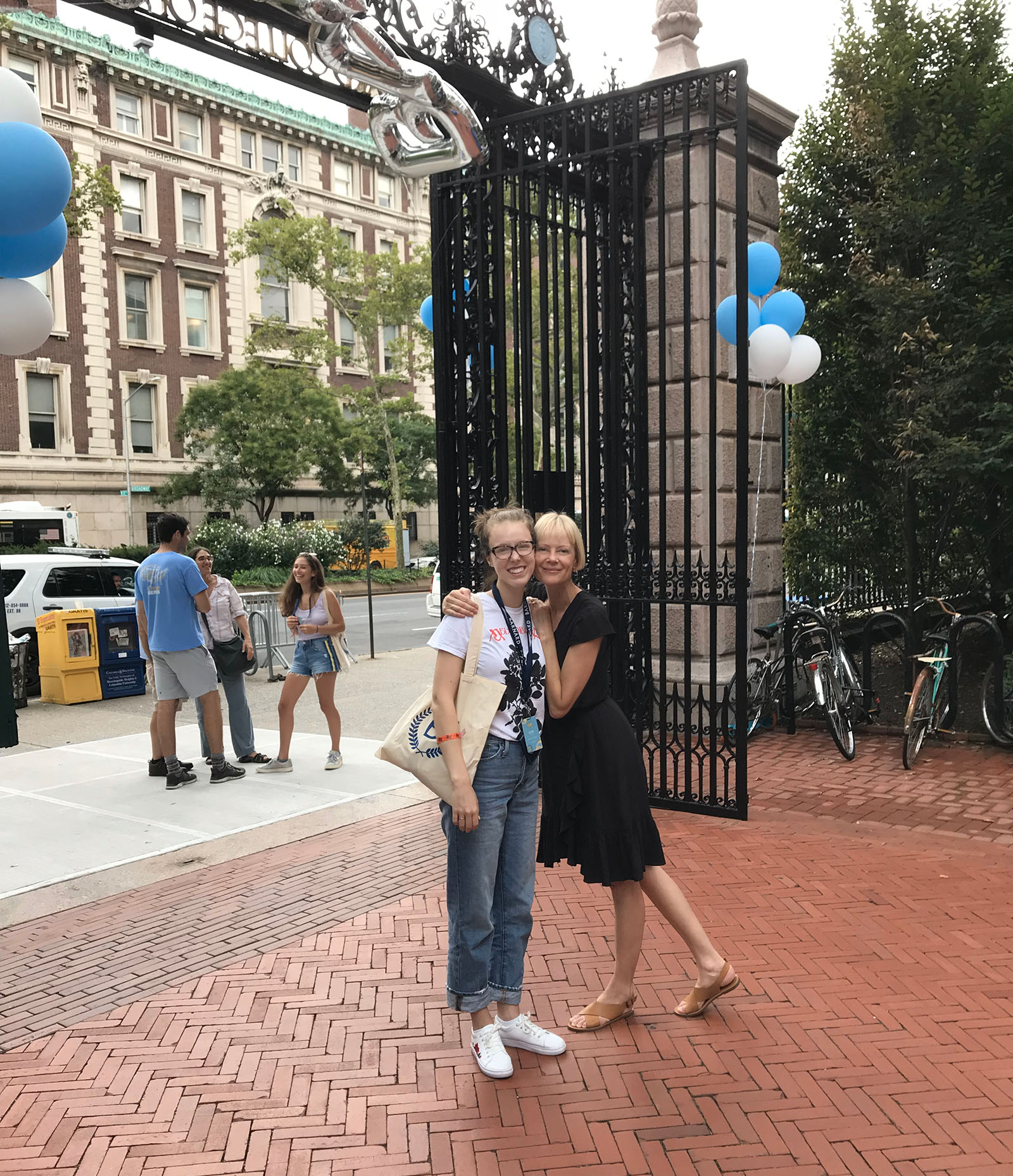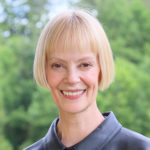You’ve been with our department for a long time. Have you always worked in communications?
Yes! I was really fortunate to have college advisors who had the foresight to help me fine-tune my BA for a career in both Communications and Art. I started out 35 years ago as a graphic designer for an educational agency similar to ESD 112, then as media director for a community non-profit before I took the job as a public information coordinator here in 1996. We’ve been growing our services ever since and I’ve grown with them, using the development of technology to expand our ability to serve our programs and school districts. It kind of blew my mind when I saw my work come full circle with the vision my advisors presented to me as an 18-year-old baby.
I’m also feeling introspective about my work as I watch my daughter step out onto her own career path. She’s following her own dreams and beginning to see glimpses of her own future but I can see the same curiosity in her that guides me each day and I hope she’s as lucky as I’ve been to get to use it in her work.

What’s something you’d like people to understand about creative work?
I think most people think that creative work is simple or even unorganized. But a lot of careful planning and “efforting” goes into it. When I say with a cheeky smile that form follows function it’s because those of us who do creative work know that our BEST work was planned and executed with precision. It’s like any other job that requires complex problem-solving. We are asked to deliver concept to completion wrapped up in a neat and tidy package. This is especially true with web development, visual design, and meeting accessibility compliance. Because we put so much effort into making it clean and succinct, it’s easy to mistake our work as simple. We must be experts in very complicated communications and design industry tools and technologies—with very limited budgets. Our clients are also using different means to communicate and turn to us to help them with those. Our greatest tool in this work that we label creative—the door that opens to all the answers—is tapping into our inspiration by approaching problems with well-defined questions.
So what inspires you the most?
Pretty much everything. I want to know the answers to everything and I thrive on collaboration where problems get looked at from every angle. Inspired thoughts are so contagious and can spark even more ideas that lead to solutions. We get to shape them with words, colors, and other visual means to help people understand better. And we can draw inspiration from an entire world of resources, whether it be natural or human-made, especially now. When I first started out as a graphic designer in 1988, the tools I had to render what I envisioned in my head were VERY limited and extremely expensive. Our toolbox now is massive and makes communicating so much more powerful. The examples are many. Digital photographs or video can be taken and shared in every conceivable app within moments. I used to take a roll of film in to be processed and wait for days before I could wax them by hand onto grid sheets along with my low-res laser-printed type, then wait for expensive blueline proofs and eventual printing—usually from a one-color press because process color wasn’t in my budget. What used to take months of preparation before can now be accomplished in moments, making the capacity to act on any inspiration very expansive. Again, mind-blowing. 🤯
Also, can anybody live in the Pacific Northwest and not be inspired by our surroundings? I can’t help but feel hopeful and find answers when I’m out in it. I love a wild storm on the coast, wandering the backroads in the Willamette Valley, a winding drive up the Gorge, or a pink and orange sunset to the west of Vancouver. Rain or shine, our fresh air is energizing and cultivates my creativity, nourishing my noggin!


What’s a good piece of professional advice you’ve received?
It’s kind of the same message I’ve shared in each of the previous questions. In my 20s, I thought of creativity as an almost intangible muse. Now, I understand it’s not elusive at all. I don’t know if somebody gave me that advice or if I just discovered through experience that if I don’t approach my work strategically, it will likely miss the mark. I’m not saying it’s not still magic when the answers come. But good “design” is meaningful “design.”
Also, use a thesaurus. It’s a great tool for those of us always searching for the perfect word but unable to find it in the vocabulary file. I’ve stuffed my head with a lot of words that I can’t seem to remember when I need to communicate them. I blame my dominant right brain!


